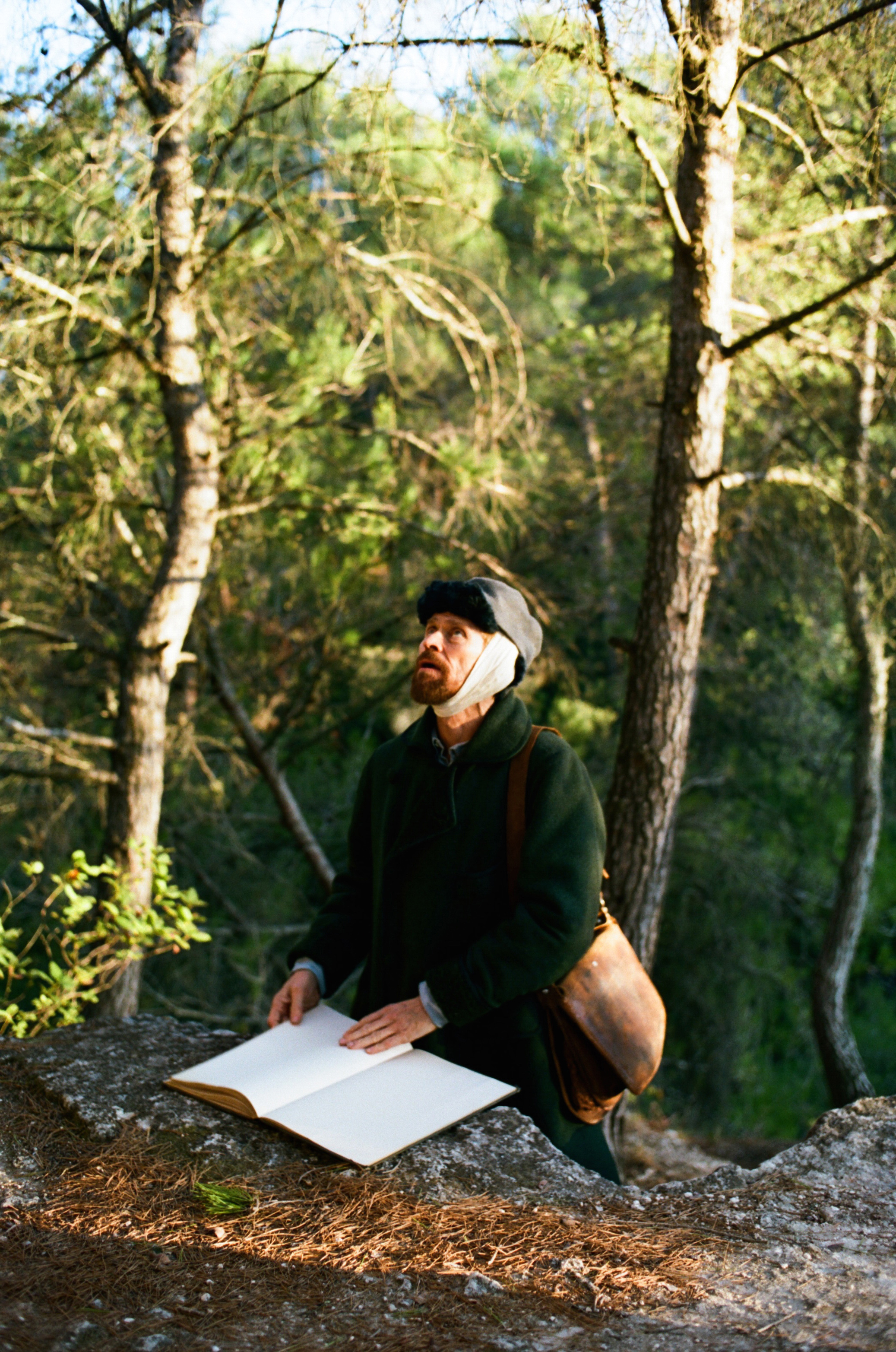At Eternity's Gate: Willem Dafoe's Van Gogh helps bring an artist's eye to an artists's life
By Jim Slotek
Rating: B
The good news about At Eternity’s Gate - Julian Schnabel’s film about Vincent van Gogh’s last days at Arles in France - is that it brings an artist’s eye to an artist’s story.
Nothing could seem more static than someone sitting at an easel, but in At Eternity’s Gate, we see Willem Dafoe, slip into Van Gogh’s skin, initiating each work in a series of slashing strokes, as-yet-unidentifiable as objects. As the painting progresses, he literally cobbles together the generous globs of vibrant colours into something like 3-D. Indeed, in one scene, his fair-weather friend Paul Gauguin (Oscar Isaac) sneers at his hasty “overpainting,” dismissing his work as “more like sculpture.”
Willem Dafoe as Van Gogh contemplates life in At Eternity’s Gate
And then there are the artist’s gleaming eyes. Dafoe is seen in close-up in much of the film, eyes alight, talking about what he sees. Counterpointed with this is a great deal of often frenzied POV meant to suggest, against the melancholy piano-heavy soundtrack by Tatiana Lisovkaia, a feverish vision of the quiet French countryside.
The script (co-written by Schnabel with Louise Kugelberg and Jean-Claude Carriere, is not as transcendent. It often seems like cobbled-together aphorisms about Van Gogh’s visions and answers to the too-often-repeated question, “Why do you paint?” (“I paint sunshine,” is the most succinct answer) and on-the-nose self-interpretation of his impoverished state. In a dialogue with a priest (Mads Mikkelsen) who has the power to sign him out of an asylum, Van Gogh suggests glaringly presciently that God made an error of timing, suggesting, “I’m a painter for people who haven’t been born.” If he’d added, “and some day they’ll pay millions for my work,” it wouldn’t seem out of place.
As a story about Van Gogh, and particularly about his relationship with the most important person in his life, his brother Theo (Rupert Friend), At Eternity’s Gate doesn’t achieve the narrative and dramatic height of, say, Robert Altman’s Vincent and Theo.
But as an impressionistic portrait of the man, it works, mainly because of the intense vulnerability Dafoe brings to the role. An opening monologue about yearning for a single human kindness, of an invitation into a conversation or a bought drink, captures Van Gogh’s real sense of being ostracised as a Dutch “hick” by the artistic elite of Paris (an authentic representation of his feelings at the time, if the text I read on a recent tour of the Van Gogh museum in Amsterdam was accurate).
His unrecognized-genius state is pounded like a nail at times, as when a bar owner disgustedly pulls future masterpieces like The Starry Night from his wall, tossing them aside like garbage. As Van Gogh laments about grey Paris as poor inspiration, Gauguin tells him simply, “Go South, Vincent.”
There, Schnabel’s visual choices lift the movie, suggesting that the genius of Van Gogh wasn’t what he painted but what was inside him. In search of sunshine, the artist ironically encounters a wintry, blustery wasteland, with a camera moment spent on a field of grey, desiccated sunflowers (a portent of his later famous floral paintings). With no other model, Vincent takes off his beaten-up shoes and begins to paint them with colourful vividness. The message: Van Gogh doesn’t paint life, he imbues it.
Schnabel is more circumspect about the drama. We never see the act of self-harm involving Vincent’s ear (though it is much talked-about) nor his reported acts of “madness” in any sensational way. An incident where he is accused of molesting a child is depicted as the kid throwing rocks and Van Gogh chasing him down and violently shaking him. Are we seeing what he remembers? And why does it differ from the villagers’ accounts of his incidents of public raving. Even events leading up to his death are treated ambiguously, as a gunplay fantasy.
A languid film, At Eternity’s Gate doesn’t take us anywhere we don’t already know we’re going. It’s more a contemplation, although often an achingly beautiful one..
At Eternity’s Gate. Directed and co-written by Julian Schnabel. Starring Willem Dafoe, Rupert Friend and Oscar Isaac. Opens Friday, November 23 at the Varsity Theatre, and on Friday, November 30 at the TIFF Bell Lightbox.

